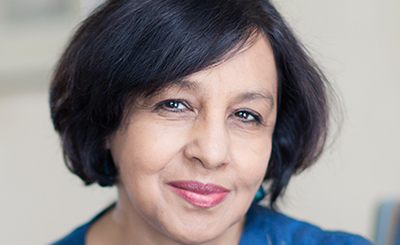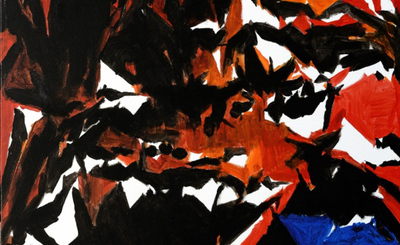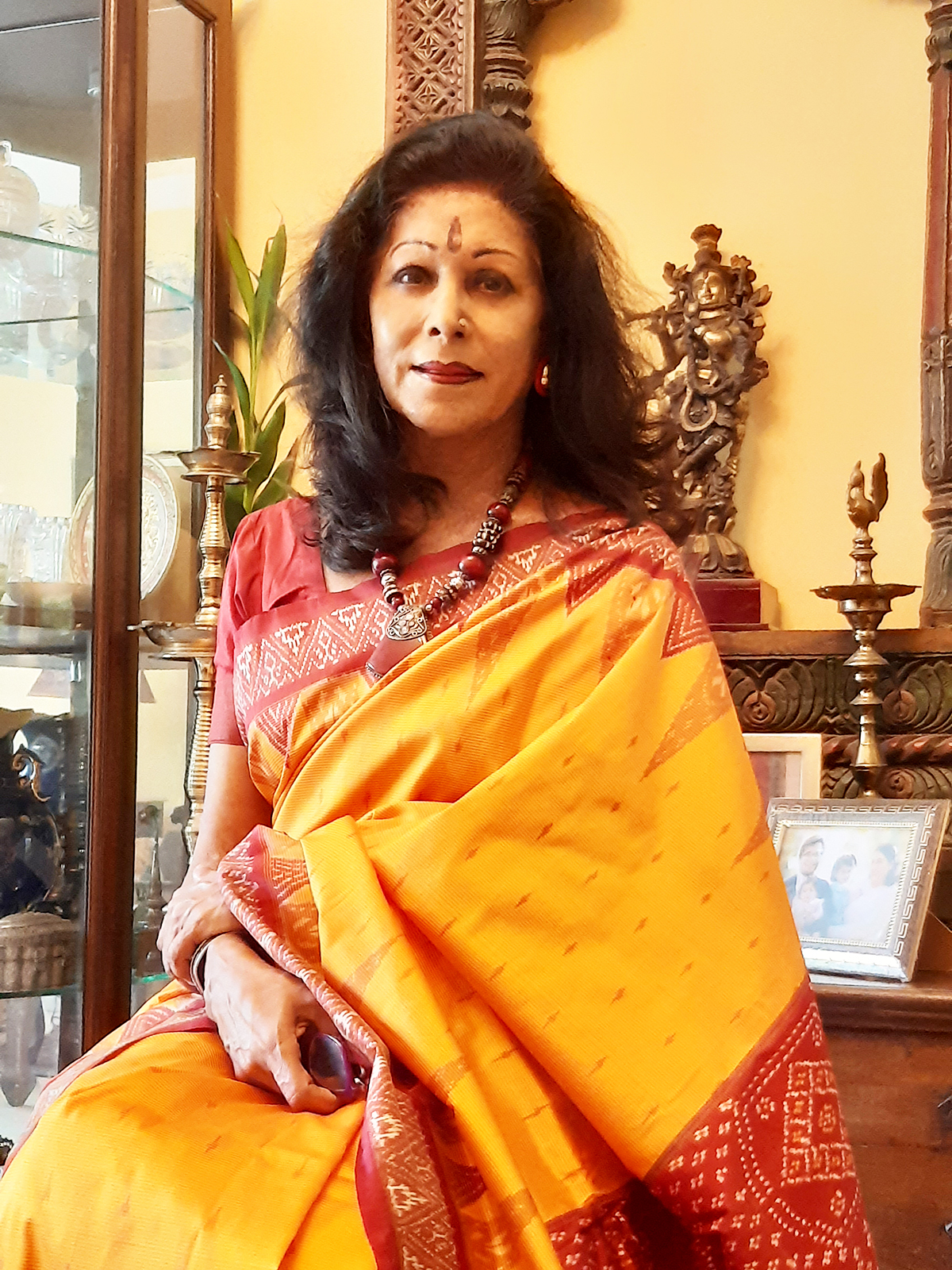
Dr Shovana Narayan, the celebrated exponent of Kathak. Photos courtesy of Shovana.
Life has been full of sweet and not-so-sweet experiences. There have been several obstacles; if each of them presented a challenge, they also brought home some learning. Today, the process of learning continues unabated. So does my sadhna through dance.
Each and every person is born with his/her own unique identity whose fragrance comes through her thoughts, words and deeds. However, the process of refinement of the individuality also lies in the hands of the person herself. How she deals with the surrounding environment — as no one is born in a vacuum — speaks in her actions or inactions in life. Either way, tangibly or intangibly, she affects all around.
Today, we are speaking of women empowerment. However, few women in all ages have created for themselves their own environment, making independent decisions. She has not only created a space for herself, most often than not, challenging the then existing social norms, and thus paving the way for others to follow.
In the Fifties, dance as a hobby, let alone a vocation, was taboo for a girl from an educated ‘good family’. Yet my parents were the first ones to encourage me to learn, because for them music, dance, literature, (Hindi and Sanskrit) formed essential part of our upbringing. They believed and breathed the ancient Sanskrit verse namely ‘sahitya sangeet kala vihina, sakshat pashu puchh visha nahina’ (without knowledge of classical literature, music and performing arts, a being is akin to an animal without horns and without tail).
Along with my own passionate interest in dance that was almost like a fish finding its life, scholastic education was an equally important part of family upbringing. Thus the two worlds went hand-in-hand: as a child artiste winning accolades and in the scholastic field, I became a post-graduate in Physics, worked for PhD in Solid State Physics, and later went on to complete two MPhils, appeared for the competitive exams and joined the IAAS in 1976. Throughout society’s then norms were being challenged with my balancing of two lives and careers. The preconceived mindset was further challenged with my marriage to an Austrian diplomat and also maintaining a successful long-distance marriage and motherhood.
While scholastic education and civil service was accepted in society, however, dance as a professional career (for by the end of the Sixties, I had been recognised as a professional classical dancer) was still frowned upon. Several unpleasant remarks were directed at me and my parents for allowing their daughter to take to dance professionally. They countered all such remarks stating that they had full confidence in their daughter for not compromising on basic values and principles. They firmly believed that it was one’s own attitude, integrity, ethical and moral values and behaviour that brought glory to a chair or a profession. Unpleasant remarks continued to wend its way to my husband and myself after marriage, too. But nothing is ever one-sided. There were several appreciative comments and remarks, too, for managing three fronts so well and for balancing my careers successfully along with a happy marriage.
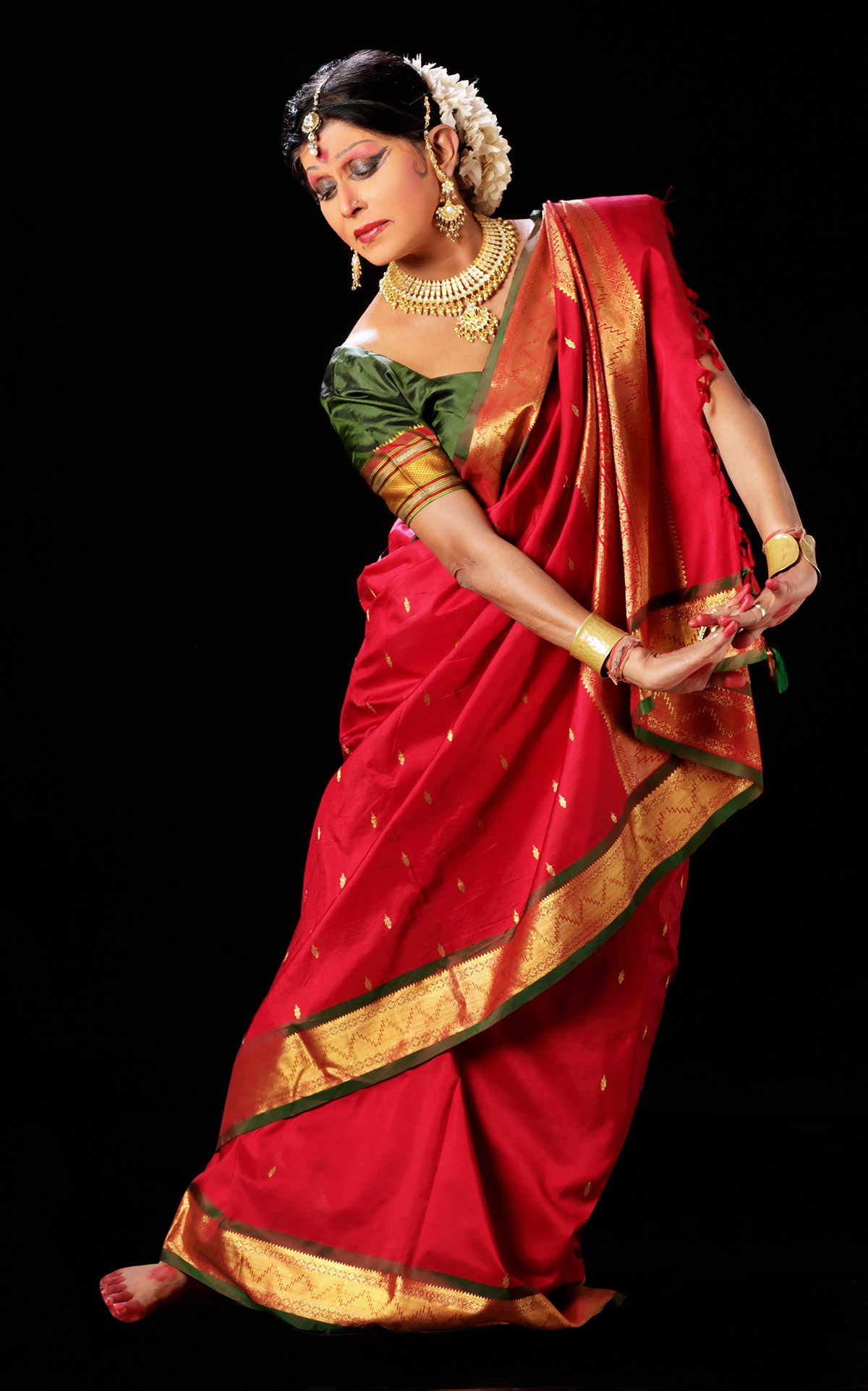
Shovana Narayan during a performance. Photo: Beenu Rajput
I have always believed that each one of us, in our own way, is managing several fronts. In case one is passionate about something, and one puts in sincere effort then one can achieve it. However, if one subjugates oneself to pre-conceived notions and mindsets, then the path and experiences are quite different. Also, in one’s life one has to be honest, truthful and dedicated to whatever one is doing. Early in life, I learnt, courtesy my mother, to focus, concentrate, go into the depth of the subject and give one’s whole to whatever one was doing at that moment. Thus, time management with dedication, devotion, sincerity and depth has been my second nature since childhood. This allowed me to maintain my top position academically and in the field of dance.
Relationships require a lot of trust, faith, friendship and respect and if these are there, then marriage and various family relationships bloom. The essence of family and togetherness is not only in the physical proximity but also in the mental, spiritual and emotional bond. It lies in the togetherness of giving and sharing. Togetherness, and essence of family, cannot thrive on demand or on possessiveness.
Mutual respect, trust, faith, honesty, concentration and dedication in whatever we do, nurture and impart strength. These also form a strong base for mental and emotional strength. It is important to always bear in mind that no one is perfect and neither is any profession. It is also necessary to always keep one’s own shortcomings in mind. What is important is our own approach, honesty, hard work and integrity towards whatever we do.
Life is full of obstacles and imbalances, as I mentioned earlier. If this was not so, it would not be called life. But the main factor is how each one of us perceives it. I never allowed adversities to overwhelm me to such an extent that I became a liability to everyone around.
I do recall so vividly that when I searched and identified my father’s body, who had died in a train accident in 1977, brought the body back to Delhi after getting the post-mortem done and I myself lit the pyre the next morning. As a very young girl in her twenties, for a moment, I did think that life had come to a standstill. But the next day I was in Mathura, giving a performance at the festival while my younger sister took the ashes to Hardwar. That is life — testing us at every point and moment! One should be oneself — but based on bedrock values of ethics, sensitivity, compassion, honesty and faith in oneself and pragmatic about one’s own capability. To many, it has seemed that I have constantly been swimming against the tide — first by pursuing two parallel professional careers, balancing a long-distance marriage along with it throughout maintaining a happy married life, and doing things all of which were not in conformity with societal accepted norms, but it just simply raises a question as to who sets society’s norms. It is us alone. Herein, I would like to draw attention to a forgotten verse in Manusmriti namely ‘partitya jyedarth akamau yausyat andharm avarjitau, dharmam pyasu khodar kaloka vidwish tameva cha’. In other words, Manu recognizes that a time may come when rules and norms become obsolete and exhorts that such norms and rules should be unhesitatingly modified or abrogated. Thus, change for a better, humane, sensitive and caring society lies in our hands. We ourselves are the tools.
Life has been full of sweet and not-so-sweet experiences. This trajectory between birth and the inevitable death has been full of adventures. There have been several obstacles, yet each of those presented a challenge and a learning platform. And I am still learning …. The process continues unabated and my sadhna through dance, too!
This piece is part of The Women’s Issue, curated by Shireen Quadri
More from The Byword
Comments
*Comments will be moderated



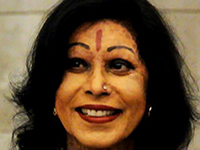
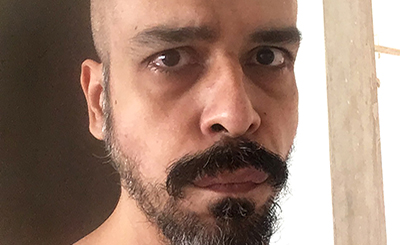
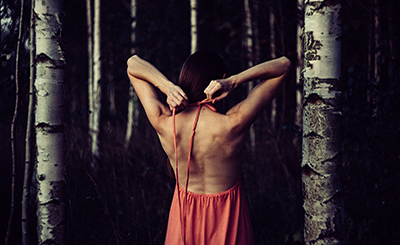
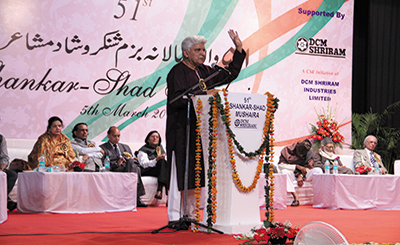
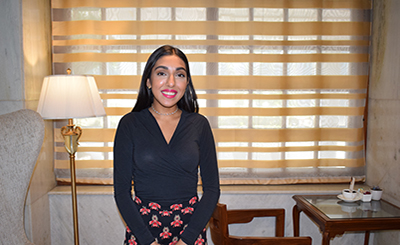
THUMB.jpg)
